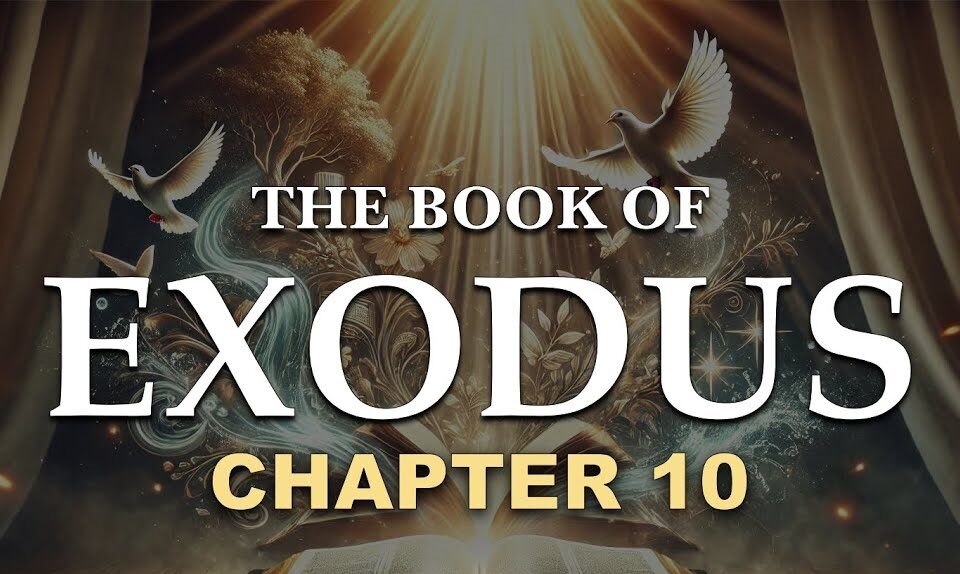Divine Retreat Centre UK – Official Website
Believe in Jesus, He knows how to heal you
May 26, 2023
The Unimaginable Power of the Blood of Jesus
June 17, 2023Bible Study by Fr Joseph Edattu
The study of Exodus Chapter 5 begins with the first verse, Afterwards Moses and Aaron went to Pharaoh and said, ‘Thus says the Lord, the God of Israel, “Let my people go, so that they may celebrate a festival to me in the wilderness.”’ It is important to remember that the only reason God called the Israelites out of slavery and established them in the promised land is to worship him. So, God sent Moses and Aaron to the Pharaoh. The Pharaoh replied, But Pharaoh said, ‘Who is the Lord, that I should heed him and let Israel go? I do not know the Lord, and I will not let Israel go.’ (Exodus 5:2) Pharaoh spoke two things in this verse –
1. Who is the Lord? We must remember that Pharaoh is considered to be one of the gods of Egypt. Egyptians have many gods, and Pharaoh is one of them. Pharaoh is called son of the Sun, or the Sun god. Therefore, Pharaoh who considers himself as god wants to know which God is asking to let Israelites go. This was a dangerous and unnecessary question, because later in the chapter God shows him who He really is. God reveals his power to Pharaoh and defeats and destroys all the other Egyptian gods through plagues. When you speak about God or Jesus and if anyone questions you ‘Who is this God or Jesus?’, do not be afraid or disappointed. Moses and Aaron were not disappointed, or upset. They did not withdraw but continued preaching and held onto their mission.
2. I will not let Israel go. Through this verse, Pharaoh implies that Israel belongs to him. But God says ‘let my people’, which indicates that Israel belonged to God. Therefore, God would go to any extent to protect his people.
It is important to remember these points. Firstly, who is our God? Our God is our Lord Jesus. Secondly, who am I? I belong to Jesus. Therefore, anyone who feels abandoned by family and friends must remember that we belong to God. We are precious to God. He loves us and will go to any extent to protect us.
Exodus 5:3 – Then they said, ‘The God of the Hebrews has revealed himself to us; let us go a three days’ journey into the wilderness to sacrifice to the Lord our God, or he will fall upon us with pestilence or sword.’ Moses and Aaron tell the Pharaoh that the God of the Hebrews has revealed himself. They were not busy trying to prove God, rather they continued sharing God’s message. So also with us, when people question us, we need not prove the existence of God, we should only continue sharing God’s message. Moses and Aaron asked Pharaoh to let the Israelites go for three days to sacrifice. This also connects to the message of the Gospel. Our entire salvation history sums up into the three-day sacrifice on Mount Calvary followed by Jesus’ resurrection. This pattern is evident throughout the Book of Exodus, where the Old and New draw parallels of the salvation story. The Old Testament Exodus started with God revealing himself to Moses through the burning bush; and the New Testament Exodus began with the annunciation to Mother Mary.
Exodus 5:4 – But the king of Egypt said to them, ‘Moses and Aaron, why are you taking the people away from their work? Get to your labours!’ Pharaoh questioned Moses and Aaron about distracting people from their work. Egypt’s ruler was not happy. When the process of deliverance begins, there will be an increase in sufferings, temptations and spiritual battles from the evil one. When God wants to save us from the clutches of evil, the evil powers get disturbed and start reacting. So, it is important to remember that during these times of suffering, we must not become despondent and back off. We should be persistent in following God’s direction for our lives. The evil will try to increase our burden, but we need to persist in holding on to God. The Pharaoh in his anger increased the workload of Israelites and said to Moses, ‘Now they are more numerous than the people of the land[a] and yet you want them to stop working!’ (Exodus 5:5) Pharaoh tried to control the Israelites. He tried to kill young children to prevent them from increasing, yet the Israelites multiplied. The evil one may try many means to control and eliminate the people of God. However, God’s blessings are more powerful than the wiles of evil and can never be subdued.
That same day Pharaoh commanded the taskmasters of the people, as well as their supervisors, 7 ‘You shall no longer give the people straw to make bricks, as before; let them go and gather straw for themselves. But you shall require of them the same quantity of bricks as they have made previously; do not diminish it, for they are lazy; that is why they cry, “Let us go and offer sacrifice to our God.” Let heavier work be laid on them; then they will labour at it and pay no attention to deceptive words.’ (Exodus 5:6-9). When God is about to do something new, we may feel our burden increasing. This is often a sign that God is trying to save us from the clutches of evil.
Exodus 5:10-15 – So the taskmasters and the supervisors of the people went out and said to the people, ‘Thus says Pharaoh, “I will not give you straw. Go and get straw yourselves, wherever you can find it; but your work will not be lessened in the least.”’ So the people scattered throughout the land of Egypt, to gather stubble for straw. The taskmasters were urgent, saying, ‘Complete your work, the same daily assignment as when you were given straw.’ And the supervisors of the Israelites, whom Pharaoh’s taskmasters had set over them, were beaten, and were asked, ‘Why did you not finish the required quantity of bricks yesterday and today, as you did before?’ Then the Israelite supervisors came to Pharaoh and cried, ‘Why do you treat your servants like this? The leaders of Israelites turned to Pharaoh in times of difficulties instead of turning to God. They considered Pharaoh as their god. They did not receive any mercy but were met with ridicule and insult. During times of difficulties, we must turn to God instead of turning to human leaders who disappoint us and cannot provide us with respite or solution.
Exodus 5: 16-17 – No straw is given to your servants, yet they say to us, “Make bricks!” Look how your servants are beaten! You are unjust to your own people.’ He said, ‘You are lazy, lazy; that is why you say, “Let us go and sacrifice to the Lord.” Pharaoh called the people lazy and asked them to continue working, ‘Go now, and work; for no straw shall be given you, but you shall still deliver the same number of bricks’ (Exodus 5:18). The Israelite leaders went to Pharaoh for help but instead he turned them down and doubled their work.
As the leaders left, they came upon Moses and Aaron who were waiting to meet them. They said to them, ‘The Lord look upon you and judge! You have brought us into bad odour with Pharaoh and his officials, and have put a sword in their hand to kill us.’ (Exodus 5: 20-21) The Israelites thought that their previous suffering was better. Often, many times, we are like this. We are slaves to addictions, alcohol and bad habits, yet we are happy and content with our lives. When we are asked to stop, we are not willing. We don’t realize that we are slaves to these evil habits. As a result, we are losing many blessings. We want to remain in Egypt even though God wants to take us into the promised land. We think Egypt is our paradise because we don’t know what real paradise is. We are happy to remain in sin and slavery. However, that isn’t true pleasure. True happiness and peace are found in God’s blessings.
Exodus 5: 22 -Then Moses turned again to the Lord and said, ‘O Lord, why have you mistreated this people? Why did you ever send me? Though Moses’ questions were wrong, his actions and intentions of turning to God were right. Moses didn’t know God’s plan. Sometimes, we don’t know the complete plan of God. We only know our current situations. If Moses knew the full plan of God that would bring out the Israelites from slavery, he wouldn’t question God. He would have strengthened the Israelites and asked them to hold firm to the Lord. Even in our lives, spiritual leaders, bishops, priests, or lay people do not know God’s plan. During these situations, we must imitate Moses who turned to God and poured out his soul to the Almighty during times of troubles. We need to empty ourselves and completely surrender to God. We must learn to implicitly trust in God.
Exodus 5:23– Since I first came to Pharaoh to speak in your name, he has mistreated this people, and you have done nothing at all to deliver your people.’ Here, Moses thinks God did nothing to deliver his people, so far. Moses did not perceive that this was only the beginning of God’s plan for deliverance.
What we learnt from Exodus 5?
– God saved Israelites not for material blessings but for worship.
– When God starts delivering, the devil starts disturbing and gives us more troubles.
– Do not withdraw from the Lord or the battle. God is leading the battle and will never let us be destroyed.
– We do not know the full picture. Only God knows the complete plan. So, do not get disappointed. Only hold fast unto the Lord and surrender all fears and anxieties to the Almighty.



